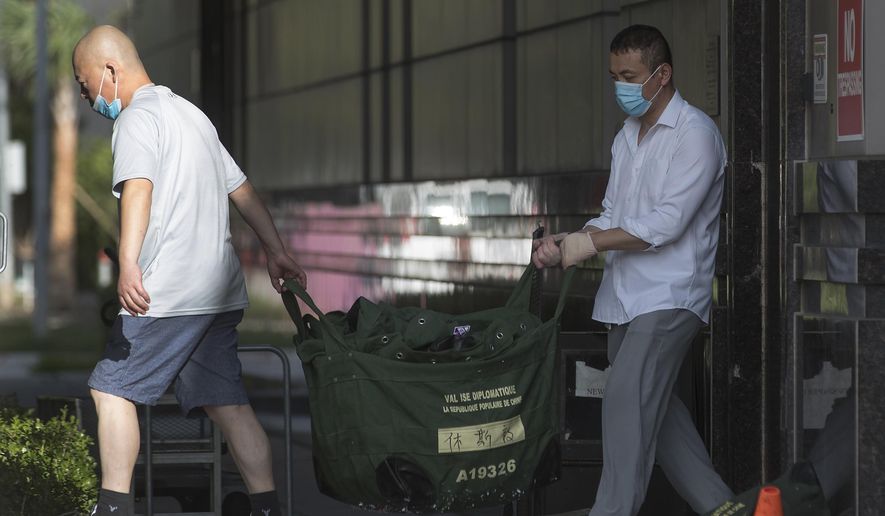The Chinese consulate in Houston, ordered closed by the Trump administration last year, was a “major hub” for Beijing’s global science and technology collection efforts, according to a new study.
Georgetown University’s Center for Security and Emerging Technology examined 642 “international technological cooperation opportunities” between 2015 and 2020 identified by Chinese diplomats and found the Houston post was the key hub for science and technology (S&T) collection globally. U.S. critics say intellectual property theft and piracy have been key to China’s drive to close the technology gap with the U.S. and the West.
“From January 2015 to July 2020, Houston consulate staff identified more S&T projects than any other [People’s Republic of China] diplomatic post in the world, and referred 89% of the projects originating from the United States,” read the report from Georgetown’s researchers. “During that time, the United States was the largest source of information technology projects targeted by Chinese S&T diplomats.”
The researchers also said that the consulate for two years starting in 2017 co-sponsored a series of “matchmaking” events with several Chinese technology transfer centers, events that drew about 300 U.S. businesses annually.
After the Trump administration ordered the consulate’s closure, China’s collection efforts visibly changed. Georgetown researchers said they observed “only one additional project from the United States” registered by the International Cooperation Department of China’s Ministry of Science and Technology after the Houston consulate’s closure.
Sen. Marco Rubio, Florida Republican, said Americans cannot be complacent or complicit about Chinese efforts to swipe American innovation.
“The report is an important reminder that the operations run out of the Chinese consulate in Houston were not a one-off,” Mr. Rubio said in a statement. “They were part of Beijing’s systematic exploitation of our laws and the openness of our society, an effort that — to one degree or another — reaches into nearly every industry, university and government institution. We need to take steps now to protect our country, our companies and our citizens from the Chinese Communist Party’s espionage.”
The Georgetown researchers’ report sheds new light on claims by the Trump administration that the Houston consulate was at the center of a crucial spying operation that accelerated during the COVID-19 pandemic, when U.S. tech firms were working on vaccine development.
In July 2020, the Trump administration gave the consulate 72 hours to close, spawning criticism that the move had a political motivation to bolster the perception of President Trump as tough on China ahead of the November election.
Secretary of State Mike Pompeo said at the time that the Houston site was “a hub of spying and intellectual property theft.” Beijing quickly retaliated by ordering the U.S. consulate in the city of Chengdu to close in July 2020.
According to the Georgetown researchers, the Chinese consulate in Houston and Chinese diplomatic posts in Russia “stood out for their outsized contributions to the Chinese government’s bulletin of overseas S&T achievements.” The brunt of China’s large-scale tech acquisition efforts is shared across several nations, with 12% of projects in a database compiled by Georgetown’s researchers originating in the U.S.
U.S. government officials say China continues to target American scientific and tech research.
The National Institutes of Health told Congress last month that 500 scientists were under investigation for being compromised by China and other foreign powers. In April, for example, a federal jury in Tennessee convicted a former Coca-Cola engineer, Xiaorong You, in a conspiracy to commit economic espionage for China.
FBI Director Christopher A. Wray said last year that his bureau opens a new China-related counterintelligence case “about every 10 hours.”
• Ryan Lovelace can be reached at rlovelace@washingtontimes.com.




Please read our comment policy before commenting.